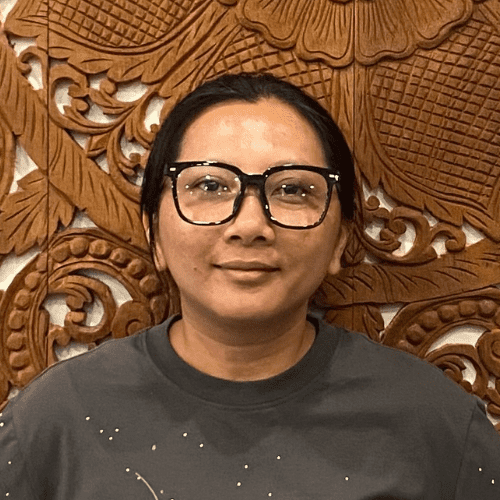
Ros Sokunthy is the Cambodia country coordinator of Focus on the Global South (FGS), a regional organisation based at the Department of Social Science at Chulalongkorn University in Thailand. FGS is working to promote progressive social transformation and alternative globalisation in Asia.
Sokunthy is passionate about enabling grassroots advocacy and action and works closely with Cambodian farmers and women textile workers. In Cambodia, foreign businesses and ruling elites have displaced millions from their homes, farmlands, and fisheries. Transparency International ranks Cambodia as the most corrupt country in the ASEAN region. According to one estimate, more than 2 million hectares of rural land – 12 percent of Cambodia’s total landmass – have been granted to private companies while human rights advocates continue to face severe repression, including imprisonment and violence.
“Land grabbing by businesses remains a big challenge in Cambodia. We mobilize farmers to resist land grabbing. We make them aware of their rights and help them frame advocacy and campaigns at the local and national levels. We also work with the farmers to strengthen their livelihoods.”
Sokunthy said that Focus on the Global South also works with Cambodian women textile workers in Cambodian garment factories. In her country coordinator role, alongside building awareness among the textile workers about their rights, Sokunthy connects Cambodian textile workers and farmers, intending to create a better synergy between urban and rural workers’ communities. Sokunthy is the author and co-author of articles and co-author of publications, including: “The Situation of Cambodian Working-Class Women and Their Struggle in the Face of the Covid-19 Pandemic”; “The Reality of National Economic Backbone”; “Where Do These Materials Go?”; “Creative Forms of Resistance in Cambodia”; “The Struggle for Labour Justice”; “Impact of COVID-19 Crisis on Small-Scale Farmer in Cambodia”; “Impact of COVID-19 Crisis on Student in Cambodia”; “Women Worker in Cambodia Under the COVID Pandemic”; and “Culture of Impunity in Cambodia: 20 Years, No Justice”.
In addition, she co-facilitated the process of creating the Backbone of Economy report, which focuses on security and safety, living conditions and environment, and renting, as well as a research study on Neoliberal influence on living costs. These used a participatory action approach to engage and empower workers and prepare them for presentations to other important stakeholders. Workers are enabled through this approach to better undertake campaigning to hold investors and corporations responsible and accountable to workers.
When Sokunthy participated in DTP training in 2005, she was in the early stages of her advocacy work. She said DTP oriented her to the foundational business and human rights knowledge – and the trade regimes that have facilitated and driven exploitative business practices.
“I remember that the training focused on trade, business, and human rights issues. We examined different cases of garment factory workers, migration, globalization, and forest degradation. We were divided into small groups and learned from each other. It was impressive. We learned from the field; then, after coming back, we reflected on what we learned from the case studies and in the field. The training was like opening a new chapter for me. I felt very interested, and I am still working on rights violation, natural resources violation, and exploitation, which are all related to business and human rights.”
Sokunthy was born in Phnom Penh city and studied at the Royal University of Law and Economics. During her university years, she worked with women who had migrated from rural to urban areas. She also worked with textile workers and sex workers. Sokunthy said that it was an essential phase in her life as these jobs let her learn about many challenges facing women.
Sokunthy also joined the Royal University of Phnom Penh, and teaches on Community Empowerment Practice I and II under the department of Social Work.
In Sokunthy’s opinion, DTP should develop a new business and human rights module of training, which will include legally binding instruments.
DTP acknowledges the traditional custodians of the land on which we work, the Bedegal people of the Eora Nation. We recognise their lands were never ceded, and we acknowledge their struggles for recognition and rights and pay our respects to the Elders – past, present – and the youth who are working towards a brighter tomorrow. This continent always was and always will be Aboriginal land.
Aboriginal and Torres Strait Islander peoples should be aware that this website contains images or names of people who have passed away.
DTP acknowledges the traditional custodians of the land on which we work, the Bedegal people of the Eora Nation. We recognise their lands were never ceded, and we acknowledge their struggles for recognition and rights and pay our respects to the Elders – past, present – and the youth who are working towards a brighter tomorrow. This continent always was and always will be Aboriginal land.
Aboriginal and Torres Strait Islander peoples should be aware that this website contains images or names of people who have passed away.
Privacy Policy | Terms of Use | Disclaimer | Policies
© 2022 Diplomacy Training Program | ABN 31 003 925 148 | Web Design by Studio Clvr